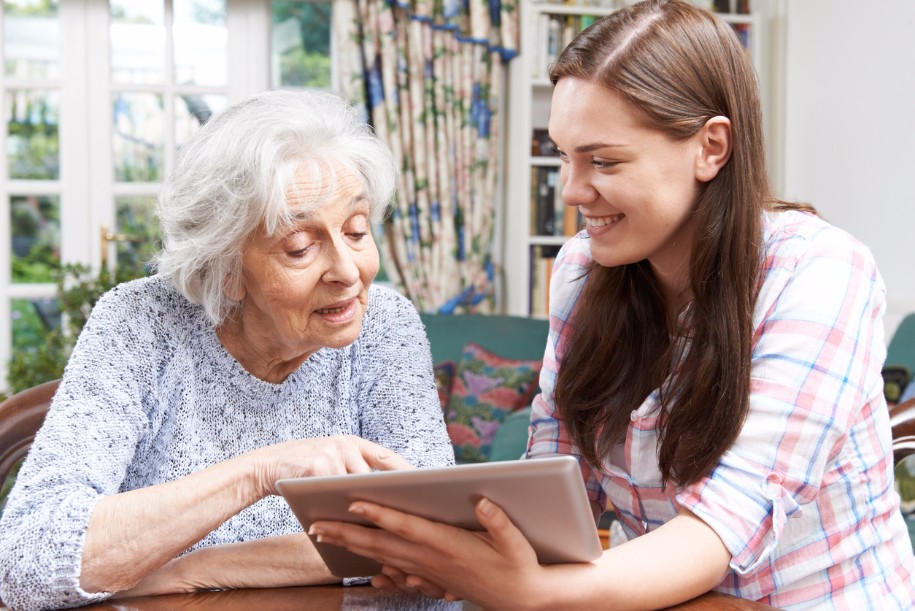
According to AARP, approximately 90-percent of seniors express a desire to remain in the home or “age in place” despite any physical or cognitive limitations. This goal is a noble one, but it is not without challenges. In order to remain at home safely, modifications to the home are often necessary. Even with these modifications, most seniors need a little help as they continue to advance in age. Family, friends and professional caregivers are excellent resources for the support and assistance a senior needs. Many seniors do not have 24-hour support available to them, however, due to financial restrictions or the limitations of their loved ones.
Voice Command Devices
Voice command devices like Alexa are opening up new doors for seniors who want to safely age in place. This technology is relatively easy to use and inexpensive. It helps seniors with essential tasks including staying in touch with loved ones, accessing transportation, ordering meals, keeping up with appointments and receiving medication reminders. With upcoming advances, voice technology will even have the ability to assist with fall prevention. This helps seniors to remain at home safely and for a longer period of time.
Hands Free Advantage
One of the advantages of these devices is that they are completely voice activated. This eliminates the need to push buttons, use a keyboard or navigate a sometimes complex screen. The devices respond readily to the senior’s voice. That feature makes them an option for those with some cognitive deficits such as seniors in the earlier stage of Alzheimer’s. Seniors who have mobility limitations can also speak to Alexa from their chair, reducing the need for and risks of ambulation.
What the Future Holds
Voice-activated devices already offer many advantages. However, the biggest pluses of this technology are still to come. Currently, tech startups like LifePod Solutions are working to transform Alexa into somewhat of a virtual assistant for seniors. Doing this will enable a three-way relationship between the senior, the device and a family caregiver or professional caregiver. The caregiver can then use a smart phone to initiate dialogue or services without waiting for commands from the user. Commands could include a voice prompt to take a medication, a request for transportation to pick up the senior, a reminder to turn off the stove and more.
Sensor Technology
Sensor technology is another feature soon to be incorporated into the device. With this technology, the senior has a wearable bracelet or other device. Sensors will then detect things like falls or other accidents in the home. That starts a chain of events including asking if the senior is okay. A call for emergency assistance then happens instantly, if necessary.
While not a replacement for a professional caregiver through an accredited agency like Salus Homecare San Fernando Valley, voice activated devices open up new possibilities when it comes to aging in place. Even today, these devices are easy to use and an excellent compliment to in home care. Further in the future, technology is expected to expand and include things like driverless cars that can easily transport seniors to and from medical appointments or social events, reducing feelings of isolation and keeping seniors more independent. The possibilities truly are endless.
There is no ads to display, Please add some

